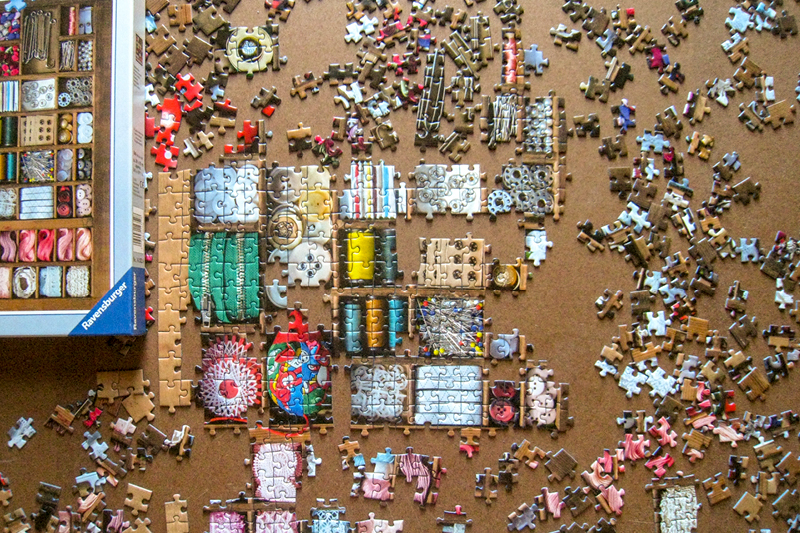Puzzling Behavior
I’m fidgety. I like to keep my hands busy. From playing pinball and Ms. Pacman as a kid, to doodling in meetings and playing guitar as an adult, my digits need to dance.
I often wish I had learned to knit like my German-born mother who has created numerous, complex Icelandic sweaters for every family member with matching scarves, hats, and (yes) leg warmers. Oh, and let's not forget the blankets made from the patterns stored in her noggin. Yup, she is a true artist. A master. A machine.
I tried learning knitting late in life to help me with my fidgety fingers, but alas this old dog grew impatient.
I recently rediscovered my childhood love of puzzles, of all things, while vacationing with friends. A puzzle of Warhol’s famous Marilyn Monroe print was left by the owner of a beach rental we were staying at. It was the perfect solution for hyper hands and a nice thing to tackle with my pals as we chatted about everything and nothing, enjoying cocktails and snacks after a day of fun in the sun.
Now I can’t get enough.
I love doing them with friends (those who will tolerate me), while chatting with my Muttie on the phone, or alone in front of the boob tube catching up on the day’s often surreal events.
So, I grew curious. What does doing a puzzle do to the brain because, well, I’m addicted! Here are a few things I learned:
Your brain releases dopamine while doing puzzles. That’s almost enough on its own!
Both sides of your brain are exercised, the right (creativity and emotions) and the left (logic), harnessing, activating, and increasing the efficiency and capacity of the mind.
A MacArthur Study found that people who do puzzles and are active live longer and have less chances of falling prey to Alzheimer’s, memory loss, and dementia.
It increases concentration and expands creativity.
It lowers breath rate, reduces heart rate and blood pressure (like meditation), therefore reducing stress and providing a sense of well-being.
It enhances self-evaluation as we try to fit pieces and reassess where they might go, a good exercise in checking and re-evaluating choices.
The more a person puzzles, the better they get at recognizing shape, form, and color, and the quicker!
They help us make judgements and draw conclusions. Dare I say, deductive reasoning?
So hey! It’s fun, it’s social (or anti-social depending on your mood), and it’s actually good for you! So, I say, adopt some puzzling behavior today.
Kristen Persinos, Marketing Director




